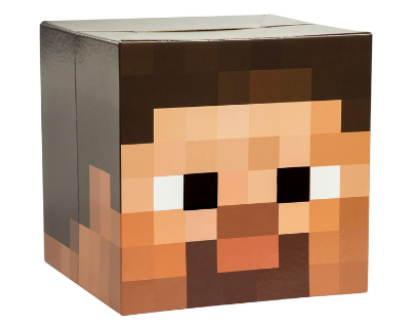Trying to stay motivated during long games can feel like running a marathon where the finish line keeps moving. Many players hit plateaus or get lost amid sprawling quests and hidden objectives. Finding a way to monitor your progress can transform the experience from overwhelming to deeply rewarding.
Understanding how to track milestones and sustain excitement isn’t just about finishing—it’s about learning, improving, and connecting with the journey itself. This is true whether you’re climbing competitive ladders or exploring vast single-player stories that unfold over dozens of hours.
This guide offers hands-on strategies, inside tricks, and useful examples for staying engaged through lengthy adventures. Each section delivers actionable steps to help you enjoy progress and keep motivation high well beyond the opening hours.
Setting Clear Goals for Long-Term Motivation
Clear goals prevent drifting aimlessly and create mini-milestones that boost confidence as you check them off. Write each target in specific, achievable language so you always know what you’re aiming for next.
Instead of pursuing only the endgame, break objectives into bite-sized pieces. For example, “Reach Level 10 by Wednesday” or “Unlock the next map area after dinner.” Visible progress keeps you invested every session.
Divide Grand Objectives Into Weekly Wins
Rather than saying, “I want to beat this game,” choose something like, “Complete three major missions this week.” This shift focuses energy on actions you can actually control.
If you prefer visual cues, hang a sticky note by your screen. Every time you achieve a small goal, replace it. The space left reminds you there’s room for new goals as you grow.
Tell a friend about your milestones, such as “Tonight I’m pushing to unlock dual-wielding.” Sharing aloud brings helpful accountability, just like a workout buddy does for the gym.
Script Out Progress Markers
Imagine a log entry: “Friday—cleared dungeon, found new gear; Sunday—joined guild, unlocked new ability.” Documenting exact steps reduces a big task into manageable events to reflect on.
Snap screenshots of significant in-game achievements. Associate each image with a short caption, turning your folder into a digital brag book. Revisiting these can reignite your drive when you feel lost.
Create a recurring mid-session check: “Where am I now versus last hour? What one thing has improved?” Write out any detail, even minor upgrades. Momentum stays visible when you acknowledge every step forward.
| Goal Type | Example Statement | Visibility | Next-Step Prompt |
|---|---|---|---|
| Short-term | Earn 500 XP | Daily log | “What helped boost XP fastest?” |
| Mid-term | Unlock a new weapon | Weekly tracker | “Which quest advances this?” |
| Long-term | Finish main story arc | Master list | “What story mission comes next?” |
| Collection | Gather 10 rare pets | Checklist | “Which area spawns a new pet?” |
| Skill-building | Master stealth ability | Journal entry | “What maneuver needs practice?” |
Building Consistent Routines to Sustain Progress
Players who carve out regular play windows see growth stack up like compound interest. Committing to a 30-minute nightly window keeps skills sharp and memories fresh—making each session more meaningful than scattered marathons.
Create a ritual around each sitting, like starting with five minutes of reviewing past progress. This primes your brain for success and reinforces your most recent growth instead of forcing you to relearn each time.
Anchor Sessions to Real Life Events
After dinner or just before bed, set reminders for dedicated gaming time. Consistent slots make it less tempting to skip—your brain craves routine, and small regular touches build lasting momentum.
Announce intentions in advance: “After my workout tonight, I’ll explore the next zone.” Linking play to everyday patterns weaves games naturally into your day instead of forcing them to fit in.
- Schedule short, focused sessions to avoid burnout while maintaining momentum; consistency beats intensity.
- Start with daily review minutes to refresh goals and track what’s changed; actively reflect for better memory.
- Set designated celebration triggers for key wins, like playing your favorite song after unlocking a tough achievement; reward motivates repetition.
- Sync progress trackers with work or school breaks to keep energy levels high; boredom drops, productivity rises.
- Publicly share goals in forums or messaging apps to find support; accountability encourages follow-through when motivation dips.
Returning at the same time each day creates a natural loop where ability and motivation both rise—like watering a plant on schedule, growth becomes automatic.
Shake Up Stagnant Patterns With Micro-Changes
When sessions start feeling stale, swap tasks mid-way: “I usually grind monsters, so tonight I’ll hunt collectibles instead.” Change in focus refreshes your brain and opens new reward paths.
Add a five-minute debrief at the end, speaking or jotting down what felt smooth, what challenged you, and what to tackle first next session. This grows a looping improvement process.
- Alternate between solo and group play to inject social energy when you’re lagging; friends can spark new goals.
- Rotate game modes—switch between main quests, side challenges, or creative tasks—for a balanced progress diet.
- Deliberately slow down to notice overlooked details; pacing yourself lets satisfaction catch up to achievement.
- Assign one “focus item” per night, such as “test a new strategy,” to keep routine engaging and goal-driven.
- End sessions on a solved puzzle or positive note to reinforce enjoyment and spark anticipation for the next play.
By layering micro-routines, routine never grows rigid. You stay invested even when the game’s scope feels daunting.
Tracking Achievements With Practical Tools
Moving beyond mental checklists, dedicated tools and trackers visualize your journey. Spreadsheets, note apps, or offline journals provide dashboards to log skills, levels, or collectibles.
Old-school paper trackers work too. Some players draw charts or jot notes beside their keyboard: a concrete log builds a sense of accomplishment and keeps you grounded when you doubt your progress.
Digital Journals Make Patterns Visible
Spreadsheets can break big goals into milestones, sorting by date and type: “Beat boss? Level up? Find hidden area?” These reveal streaks and encourage small, daily wins.
A mobile note app can store screenshots, clipped dialogue, or inventory lists. Flipping through history—”here’s where I started, here’s what I nailed this week”—fights discouragement during lulls.
For immersive games, a digital map with custom pins highlights your explored areas versus blank space. Returning to fill in gaps brings tangible, lasting satisfaction with each session.
Reward Systems for Immediate Feedback
Stickers, digital badges, or simple tally marks after conquering hard quests provide instant wins. Each completed mark matters, fueling a “see and believe” attitude even on slow days.
Link small, real-world rewards to in-game tasks: after ten sessions, get a favorite snack or take a walk. Rewards form a two-way bridge—game progress feels valuable outside the virtual world too.
Create a “level-up wall” (physical or digital) with priority achievements and dates. Seeing it grow builds pride, and pointing to a date helps recall obstacles you overcame.
Overcoming Plateaus and Pushing Past Stuck Points
Everyone stalls in long games at some point. Compare two players: one who shrugs and drifts, another who uses stuck spells as launchpads. The latter quickly regains ground with practical next steps.
Plateaus signal it’s time for a tactical shift, not surrender. Pinpoint one element that hasn’t budged—like skill ratings or quest progress—then run a fast experiment, adjusting your approach to break inertia.
| Stuck Area | Usual Fix | Alternative Fix |
|---|---|---|
| Boring grind | Switch activities | Listen to podcasts while grinding |
| Can’t beat boss | Watch a guide | Ask a friend for a co-op run |
| Missed collectibles | Use a checklist | Join online mapping group |
The above table highlights how pivoting when stuck opens new opportunities. Adapt these tactics when you find yourself losing steam before the next big breakthrough.
Designing Mini-Challenges Inside the Main Adventure
Short-term challenges inject excitement between major story arcs. Set up self-imposed restrictions, like “No fast travel for a week,” to spotlight underused mechanics and foster new habits.
Apply the “theme night” system: one night dedicated to stealth, another to speed runs. These micro-challenges not only stave off monotony but also deepen your appreciation for different aspects of the game.
Racing yourself—like sprinting across a map or beating previous boss times—turns routine tasks into contests. You’ll tap into a performance mindset, training like an athlete with clearly marked drills.
When playing in a group, propose quirky dares: “First player to find five hidden treasures calls the next mission.” This brings fresh enthusiasm and encourages friendly bonding over unique rules.
Leveraging Community and Social Accountability
- Check in with friends at the end of each week; recap a win and a struggle for honest progress tracking.
- Share screenshots or stats on a fan forum to celebrate milestones and gain tips from those ahead of you.
- Post your current objective in a group chat to invite friendly rivalries or crew up with others on similar missions.
- Participate in time-limited challenges or community events; deadlines convert vague momentum into sharp, focused effort.
- Join Discord or in-game groups with specific roles and ranks, so your achievement unlocks new permissions or duties.
- Mentor a new player, giving advice on common pitfalls; teaching reinforces your own competence and tracks your knowledge gain.
Playing with others weaves accountability into your routine. Reports to peers elevate pride in progress and offer support during slumps. Every interaction reinforces that your efforts are visible and meaningful.
Social proof gives progress a public shape, strengthening resolve to keep moving forward—especially through tough story arcs or challenging events.
Celebrating Wins and Reinforcing Motivation
Marking progress with personal rituals keeps positivity high. Let each win prompt a celebration, no matter how small: pausing for a favorite snack, sending a message to a friend, or updating your tracker.
Use analogies to real-world victories to stay motivated. Finishing a tough raid feels like completing a DIY project—each step matters, and the final product carries pride you can revisit later.
Review your journey monthly. Flip back through logs or screenshots, noting not just what you did but how your mindset shifted. Recognize how obstacles built skill over time, reinforcing that growth is happening even when slow.
Comparing early and current progress unlocks gratitude and sustains effort. Just as runners keep old race bibs, trophy lists showcase proof of distance traveled. This backward glance encourages new forward leaps.
Finishing Strong: Staying Engaged for the Last Stretch
Long games can test patience as endings approach. To keep momentum, reconnect with your starting excitement—review the first character, first quest, or key decision. Small callbacks reignite early ambition.
As you near the finish, tighten targets: “Complete one major objective per night, then log a reflection snapshot.” Structured sprints create visible momentum, helping you power through fatigue.
Use your completion list like a ladder. Each rung, from major boss to final collectible, earns a genuine celebration. Checking items off makes the most distant goal feel immediate and real.
If fatigue sets in, pause to acknowledge achievements, study what skills you’ve developed, and plan one celebratory ritual for game completion—like posting a screenshot or treating yourself offline. Recognition cements your investment.
Track every step as you close out your journey. By celebrating, sharing, and setting clear finish-line rituals, you ensure that the game’s conclusion feels as rewarding as those first moments of discovery.

